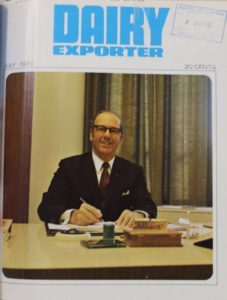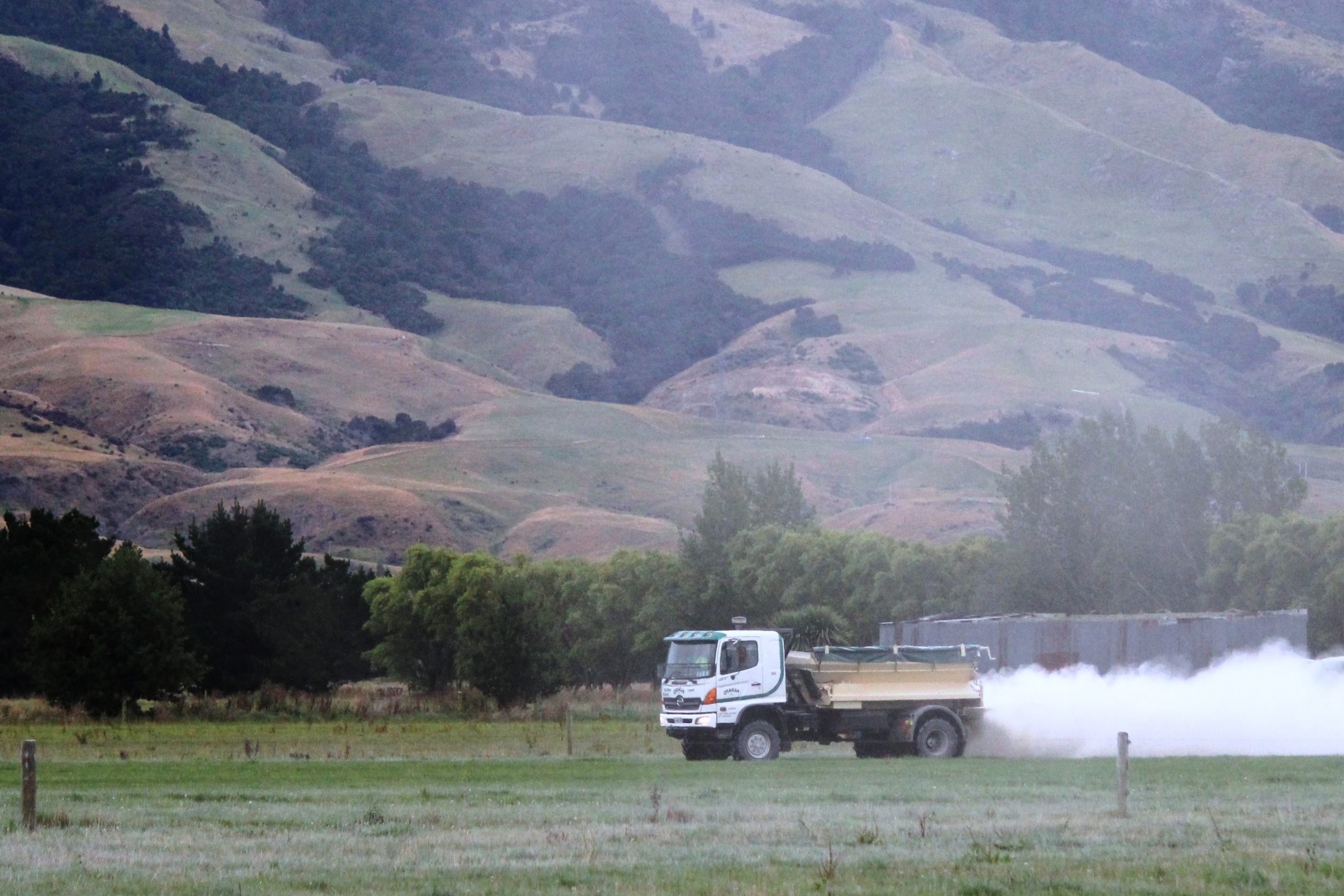As NZ Dairy Exporter counts down to its centenary in 2025, we look back at the issues of earlier decades. 50 Years Ago – July 1970.
COVER PHOTO
Mr A. H. Ward, O. B. E., one of the dairy industry’s most outstanding executive officers, has retired as General Manager of the New Zealand Dairy Board. Looking much younger than his 64 years, Mr Ward was photographed behind his desk before handing over the reins of office to his successor, Mr S. T. Murphy.
 A WINTERING PAD YES OR NO?
A WINTERING PAD YES OR NO?
Even at high stocking rates on wet soil there was little gain from the use of a feeding platform in winter.
With certain qualifications, this was the main message from the eight-year trial conducted on the Massey University No. 3 Dairy Unit.
Mr I. P. McQueen, Massey Dairyfarms Supervisor, reported on the wintering trial at the Massey Dairyfarmers’ conference last month in a paper on “The effects of Winter Management on Farm Production”.
The main objective of the trial was to assess the value of removing stock from pasture during wet weather in the winter, as some work at Grasslands Division had shown drastic pasture growth reductions caused by winter pugging.
PRACTICAL LESSONS FROM THE DROUGHT
A difficult factor over which farmers had no control was getting works’ space for cull stock, but some farmers had greater success than others by making advance bookings for works space, keeping in touch with several stock buyers and assessing in advance likely works’ stoppages.
A rising boner beef schedule helped to partly offset the drop in butter fat income.
While there are as yet no records of how many old and low-producing cows were culled because of the drought, the need for many farmers to get rid of these poor converters of the limited feed supplies illustrated the great advantage of herd testing in order to have soundly based culling information.
NEW DAIRY SPECIALISTS APPOINTED
Eight new Department of Agriculture farm dairy management specialists are taking up posts throughout the country following the completion of an intensive 19-week training course at Ruakura. They are the first of a 40-man specialist group of Dairy Advisory Officers (Farms).
“The primary job of these men will be to assist any dairy farmers wanting help with problems encountered in producing top quality milk,” says Mr N. E. Briggs, Director of the Department’s Dairy Division.
The men all hold agricultural degrees and the special course they have just completed covered all phases of farm dairy hygiene and management.
They will be stationed in Papakura, Whangarei, Whakatane, Hamilton, New Plymouth, Palmerston North and Christchurch.
CONVERSION TO METRIC WEIGHTS AND MEASURES
The Dairy Board has decided in principle to convert all export packs to metric weights and measure. The timing of the various steps in this operation, which must be spread over a period, will be worked out in co-operation with dairy companies.
Conversion “to a substantial degree” is anticipated by the end of the year 1976.
For some years, the metric weight equivalents have been shown on all dairy products export packs, and the Dairy Board is accustomed to selling by metric weight.
MUCH TALK BUT LITTLE ACTION OVER EEC DAIRY SURPLUSES
Optimism about moves by the EEC to reduce dairy production must be tempered with political realism, the Minister of Agriculture, the Hon D. J. Carter, warned the Dominion Dairy Conference.
In spite of various moves within the EEC to slow down the rising flood of milk, so far not a great deal had actually happened, he said.
At the end of 1969 butter stocks in the EEC amounted to 340,000 tons. This was an increase of only 10,000 tons over the figure at the end of 1968. In the latter year, however, stocks rose by nearly 100,000 tons, he said.
“Much emphasis has been placed in some quarters upon the proposals for changes in European dairy policies. Considerable publicity has been given to the scheme under which premiums are paid for cows which are slaughtered and not replaced.
“The United Kingdom has been the traditional and essential base for New Zealand’s dairy exports. British membership of the EEC aside, the United Kingdom can no longer be regarded as a market capable of significant expansion.”
Thanks to the Hocken Library, Dunedin.





